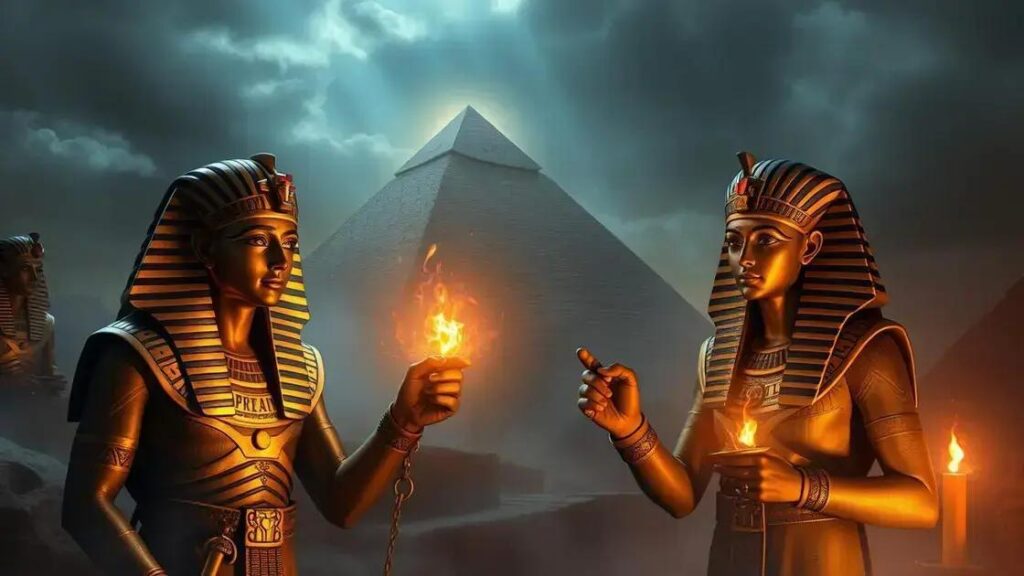The tricks of the Egyptian Pharaohs included mastering illusions of power, manipulating natural resources, conducting elaborate rituals, and forming strategic alliances, which allowed them to maintain control and influence over their society while leaving lasting legacies that still resonate today.
Real testimonials about the Tricks of the Egyptian Pharaohs provide a fascinating glimpse into ancient Egypt’s secrets. Throughout history, pharaohs have dazzled the world with their enigmatic practices and profound wisdom. These ancient leaders were known for their uncanny ability to manipulate their surroundings and influence their people. In this article, we will delve deep into the real testimonials that reveal the tricks they employed, decoding the ancient practices that have captivated historians and archaeologists alike.
Understanding the Pharaohs’ Influence
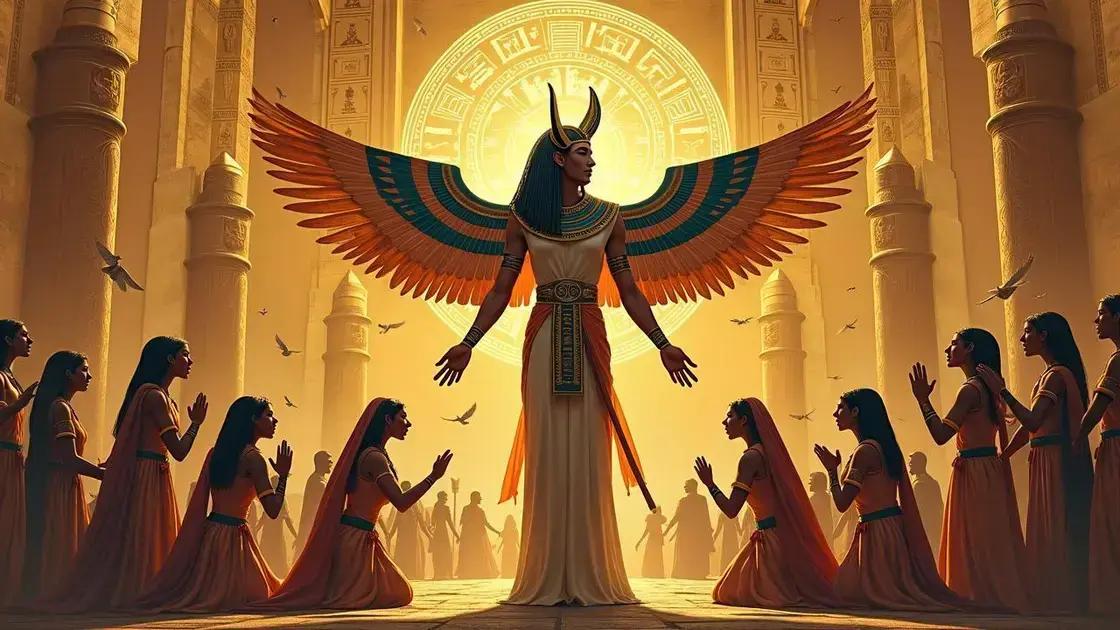
The influence of the Pharaohs in ancient Egypt was profound and far-reaching. These rulers were not just political leaders; they were seen as divine figures. The Pharaohs held enormous power over their people and were believed to be chosen by the gods. Their influence permeated all aspects of life, including religion, art, and governance.
Religious Significance
The Pharaohs were considered living gods, a bridge between the deities and the people. This belief helped them secure loyalty and obedience from their subjects. Temples were constructed in their honor, and lavish rituals were performed to ensure the favor of the gods.
Cultural Impact
The Pharaohs also shaped the artistic expressions of ancient Egypt. Their reigns saw the creation of magnificent monuments, stunning sculptures, and intricate hieroglyphics. These artistic endeavors served not only to glorify the Pharaohs themselves but also to convey messages to future generations.
Political Power
Pharaohs wielded significant political power as they united Egypt. They implemented laws and structures that promoted societal stability. This authority extended to the military, agriculture, and trade. Their influence was essential in maintaining Egypt’s prosperity and security.
Legacy of Influence
The legacy of the Pharaohs continues to intrigue people today. Their stories and achievements are documented in various historical texts and through archaeological findings. Each discovery offers real testimonials about their influence and the tricks they used to maintain power.
Decoding the Ancient Tricks
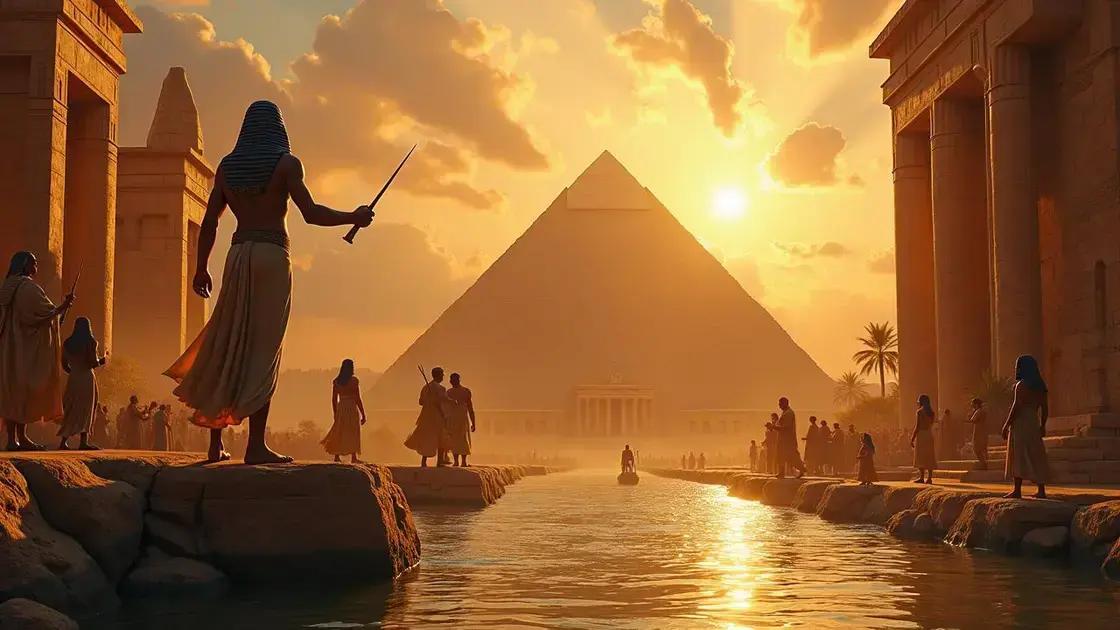
Decoding the ancient tricks of the Egyptian Pharaohs reveals fascinating methods they used to maintain power and control. These strategies helped them dominate their society and left a lasting legacy.
Illusions of Power
The Pharaohs mastered the art of illusion. They often used architecture to create an imposing presence. Monuments like the Great Pyramid of Giza were designed to awe and intimidate. This architectural grandeur made people believe in their divine right to rule.
Manipulating Nature
Another ancient trick involved manipulating the Nile River’s annual flooding. Pharaohs controlled irrigation systems to ensure abundant crops. By regulating the water supply, they could present themselves as providers of life and prosperity.
Religious Rituals
Pharaohs heavily relied on religious rituals to reinforce their power. Elaborate ceremonies and festivals were held to honor the gods and themselves. These events not only pleased the deities but also united the people under the Pharaoh’s rule.
Strategic Marriages
Strategic marriages were also common among Pharaohs. By marrying into powerful families, they strengthened alliances and maintained stability. These unions helped secure political power and consolidating influence over neighboring regions.
Real Testimonials from Archaeological Discoveries
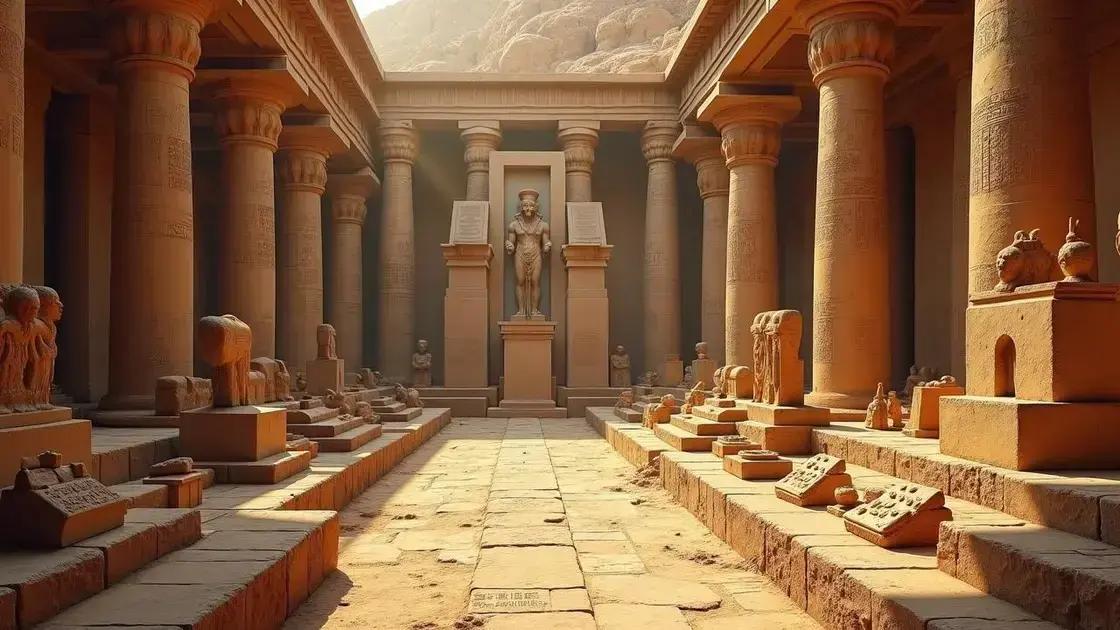
Real testimonials from archaeological discoveries provide invaluable insights into the life and tricks of the Egyptian Pharaohs. These findings not only illuminate the past but also validate historical accounts of their reign.
Artifacts and Records
Among the most significant discoveries are inscriptions found in tombs and temples. These hieroglyphics often recount the remarkable feats of Pharaohs. For example, the Tomb of Tutankhamun revealed items confirming stories about his early reign.
Burial Sites
The burial sites of Pharaohs have also provided numerous real testimonials. The way they were interred, along with the objects placed with them, reveals their beliefs about the afterlife. Artifacts like jewelry and weapons indicate their status and the power they wielded.
Advanced Knowledge
Moreover, tools and construction techniques found at archaeological sites showcase the advanced understanding the Egyptians had of engineering and architecture. The precision in the pyramids’ construction demonstrates the Pharaohs’ mastery over resources and labor.
Religion and Rituals
Lastly, discoveries related to religious practices shed light on how the Pharaohs used spirituality to their advantage. Temples dedicated to gods, complete with depictions of ceremonial practices, illustrate how Pharaohs sought divine favor to legitimize their rule.
Lessons from the Pharaohs’ Mysteries
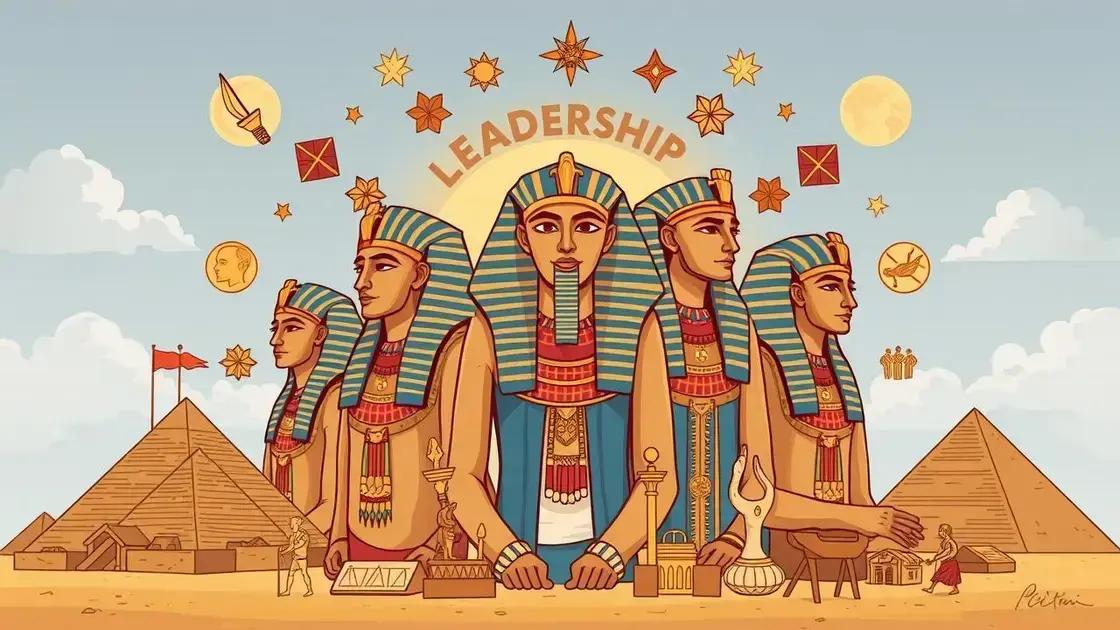
The mysteries of the Pharaohs offer many lessons that are still relevant today. By studying their lives, we can gain insights into leadership, strategy, and resilience.
Effective Leadership
Pharaohs were powerful leaders who unified a kingdom. Their ability to inspire loyalty among their subjects was key to their success. This teaches us that effective leadership is about building trust and empowering others.
Strategic Planning
Pharaohs displayed remarkable strategic planning in their monumental projects. The construction of pyramids was a feat of logistics and organization. This demonstrates the importance of careful planning and resource management in achieving long-term goals.
Adaptability
Throughout their rule, Pharaohs faced numerous challenges, including droughts and conflicts. Their ability to adapt to changing circumstances was crucial. This highlights the value of flexibility and resilience in facing life’s uncertainties.
Legacy Building
Finally, the Pharaohs understood the significance of creating a legacy. Their monuments and cultural contributions persist today. This teaches us that our actions have lasting impacts, and we should strive to leave a positive legacy for future generations.
Reflecting on the Timeless Lessons of the Pharaohs
The exploration of the tricks and influence of the Egyptian Pharaohs reveals enduring principles that can guide us today. Their effective leadership, strategic planning, and adaptability in the face of challenges offer valuable lessons.
Moreover, the legacies they built remind us of the impact our actions can have on future generations. The archaeological discoveries bring real testimonials of their reign and provide evidence of their sophisticated methods.
By understanding these ancient practices and lessons, we can apply them to our own lives and endeavors, harnessing the wisdom of the past to navigate the complexities of the present.
FAQ – Frequently Asked Questions about the Tricks of the Egyptian Pharaohs
What tricks did the Pharaohs use to maintain their power?
Pharaohs used a combination of illusions of power, manipulation of natural resources, religious rituals, and strategic marriages to maintain their influence.
What do archaeological discoveries tell us about the Pharaohs?
Archaeological findings provide real testimonials about the Pharaohs’ reign, showcasing artifacts, burial practices, and advanced knowledge of construction and irrigation.
How did the Pharaohs influence ancient Egyptian society?
Pharaohs influenced every aspect of life in ancient Egypt, from religion to art, governance, and agriculture, reinforcing their authority and divine status.
What lessons can we learn from the Pharaohs?
Lessons include effective leadership, strategic planning, adaptability to challenges, and the importance of building a lasting legacy.
How did the ancient Egyptians construct the pyramids?
The construction of pyramids involved advanced knowledge of engineering and organization of large labor forces, showcasing the Pharaohs’ ability to accomplish monumental tasks.
Are the legacies of the Pharaohs still relevant today?
Yes, the principles of leadership, resilience, and strategic planning from the Pharaohs can inspire contemporary practices in business and governance.

